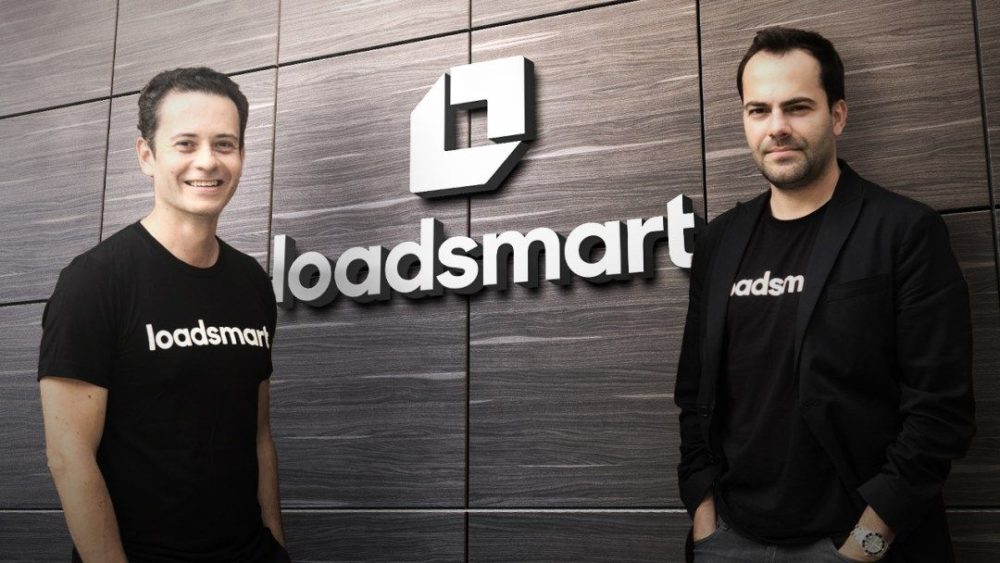Digital platforms are cutting out unnecessary intermediaries in the agrifood supply chain, allowing farmers to get better prices, reducing antiquated paper-based practices, and providing consumers with fresher produce.
“We believe there is a more efficient and environmentally responsible way for shippers of all sizes to move their freight with less of whatever they care most about: cost, CO2, or time, to name a few,” Felipe Capella, co-founder, president, and chief operating officer of Loadsmart, tells AFN.
Founded in 2014, Loadsmart has developed a digital platform that aims to more effectively connect shipper demand with carrier supply. Shippers are able to price, book, and track thousands of shipments in seconds right from their native transportation management system.
On the carrier side, the New York-based startup provides dispatchers with the ability to find shipments based on location and distance preferences. It also offers different methods for fleet managers to oversee the freight they are moving.
It mainly serves small to mid-size shippers and carriers in sectors such as food and beverage, grocery, retail, and consumer packaged goods.
“As markets remain volatile, our product allows shippers and carriers to transition from static annual contracts to dynamic pricing structures, limiting disruption. As a result, we are uniquely positioned to provide unmatched data insights to help shippers and carriers optimize their operations,” Capella says.
Read on to learn more from Capella (FC) about how Loadsmart is tackling the produce supply chain.
AFN: What is your solution, and what problem is it trying to solve?
FC: Loadsmart is a digital freight technology company leveraging AI, machine learning, and other technologies to efficiently connect carrier supply with shipper demand.
For decades, the process of moving freight from point A to point B was a time-consuming, manual process. We make that easier for our shipper and carrier customers. Our technology not only automates how freight is priced, booked, and shipped, but it provides visibility into how to optimize your business. The more a shipper or carrier moves with Loadsmart, the deeper our data insights optimize every single load by mode, cost or, emissions – a process has been laborious at best and non-existent at worst.
AFN: What growth stage are you at as a company?
FC: In November 2020, we closed our Series C funding round of $90 million, which will allow us to better serve shippers by doubling down on the tools to deliver excellent operational performance, as well as an expansion of value-added services like mode optimization, price transparency, and data insights for supply chain optimization opportunities. The [funding] was led by BlackRock’s Innovation Capital arm and includes investments from Chromo Invest, TFI International, and Maersk. In total, Loadsmart has raised $146 million and is valued at more than $400 million.
AFN: What are some of the toughest challenges that you’ve faced as a company, and how did you overcome them?
FC: We’ve created an innovative approach for an industry that has been operating largely the same way for the last hundred years. We’ve found ourselves in this place where the current method of brokering freight is successful in every basic sense of the word, but the current methods aren’t the best, most efficient, or cost-effective and we have to prove to the industry that there is a better way – and it’s by leveraging technology.
AFN: What has been the most surprising aspect of your startup journey so far?
FC: The speed of customer acquisition. We built the sales team from the ground up, beginning in November 2018. Within our first year, we acquired 22% Fortune 100 customers. We knew from that point on that we had a strong market position and that we are fulfilling a need in the industry.
Of course, Covid-19 was a shock to everyone. But one of the most surprising aspects of all was the way in which it accelerated the rate of technology adoption. Our adoption rate in Q2 was higher than all of 2019 combined, further attesting to the industry’s desire to advance and optimize operations through the use of advanced technology.
AFN: Have you entered or won any tech competitions? If so, was it beneficial?
FC: We actually created an internal hackathon competition at Loadsmart which empowers our employees to innovate. Teams are composed of employees across divisions — it’s not just engineers working with engineers or marketing working with marketing — which helps break down divisional silos. Teams identify a problem that the industry is facing and build their ideas for solutions into a real initiative. Loadsmart mandates that all ideas can go to production by the end of the event. We secured our best revenue day in company history — at the time — one week after the program wrapped, as a direct result of a solution that came out of the hackathon.
AFN: What’s your advice for other startups in agrifoodtech?
FC: Don’t ever stop being intellectually curious and always learn by doing. It’s in a startup’s DNA to challenge the status quo, and with that comes obstacles or pushback from the industry. Continue to push the boundaries of innovation.





